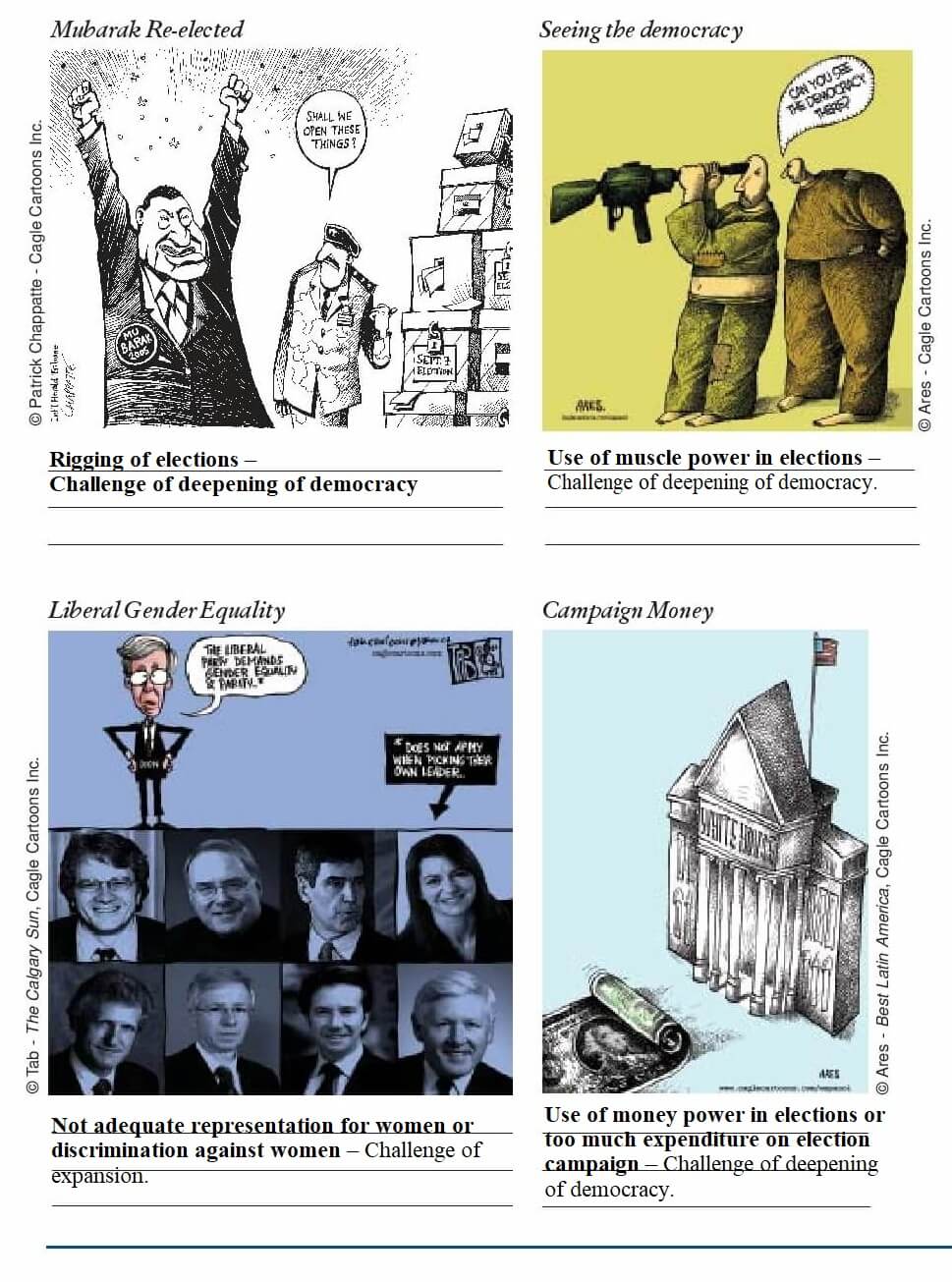Class 10 Civics : Democratic Politics II Chapter 8. Challenges to Democracy Summary, Explanation, Question Answers (NCERT Solutions)
Challenges To Democracy (8. Challenges to Democracy) CBSE class 10 Civics : Democratic Politics II Chapter 8. Challenges to Democracy summary with detailed explanation of the lesson Challenges To Democracy along with meanings of difficult words. Given here is the complete explanation of the lesson, along with summary, explanation and questions and answers of each topic of lesson 8. Challenges to Democracy.

[Page 103]Different contexts, different challenges
Each of these cartoons represents a challenge to democracy. Please describe what that challenge is. Also place it in one of the three categories mentioned in the first section.

[Page 103][Page 104][Page 106]| Different types of challenges :
Now that you have noted down all these challenges, let us group these together into some broad categories. Given below are some spheres or sites of democratic politics. You may place against each of these the specific challenges that you noted for one or more countries or cartoons in the previous section. In ease you find that some challenges do not fit into any of the categories given below, you can create new categories and put some items under that.
|
[Page 107]Let us group these again, this time by the nature of these challenges as per the classification suggested in the first section. For each of these categories, find at least one example from India as well.
| ||||||||||||||||||||||||
Now let us think only about India. Think of all the challenges that democracy faces in contemporary India. List those five that should be addressed first of all. The listing should be in order of priority, i.e., the challenge you find most important or pressing should be mentioned at number 1, and so on. Give one example of that challenge and your reasons for assigning it the priority.
|
[Page 109]Here are some challenges that require political reforms. Discuss these challenges in detail, study the reform options offered here and give your preferred solution with reasons. Remember that none of the options offered here is ‘right’ or ‘wrong’. You can opt for a mix of more than one option, or come up with something that is not offered here. But you must give your solution’in details and offer reasons for your choice.
|
[Page 112]| Write your own definition of good democracy and its features. |





